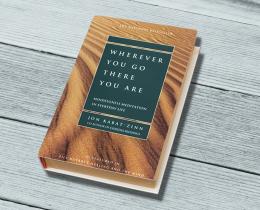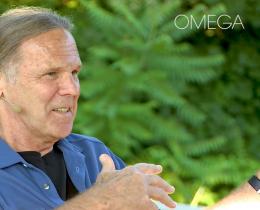Mindfulness does not belong to Christianity, Buddhism, or Taoism, just as the breath we inhale and exhale does not belong to any one of us. Everywhere human beings have lived, we have needed to cultivate attention; whether it was for hunting, fashioning tools or clothes, or intellectual pursuits. We have always needed compassion to live in harmony and enjoy our lives. Humans from every culture have developed the wisdom to ask the big questions of life. These universal practices have been cultivated throughout millennia—or, we may say, they have cultivated us.
Throughout history religious and cultural traditions around the world have used meditation to build on the capacities of authenticity, kindness, and insight. Many religious traditions use the deities of their particular religion, using visualizations, mantras, and prayer to cultivate these characteristics....The beauty of mindfulness for our modern use is that all we need is our breath, our bodies, our minds, and our hearts.
Every cultural and religious tradition has its own mindfulness practices. If you come from a tradition to which you feel connected, I recommend exploring the practices within it. The prayers, meditations, and devotional practices you can find in any tradition can be used to cultivate compassion, attention, and a sense of connection to all things. Mindfulness practices can also focus and support the practices of whichever tradition you are already part of. Steady focus and an open heart can support the prayers of a Christian, the poses of a yogi, and the intellectual questioning of an atheist.
I have had several experiences in which parents or teachers expressed concern that my colleagues and I were teaching Buddhism in the schools. Each time this has happened, I have invited the parent or teacher to see for themselves and sit in on one of the classes. Once they have seen that all we are doing is learning to breathe, relax, and find emotional equilibrium, no one has complained any further. In fact, a few of these parents and administrators have become major supporters of the mindfulness in education movement. Mindfulness-based curricula and trainings have been fluidly instituted into Catholic schools, Jewish schools, Quaker schools, and many other public and private school-based settings.
Nevertheless, separation of church and state is a concern that arises in school settings, and it is important to address. Buddhism as a tradition has spent a great deal of time on the universal practices of attention and lovingkindness. Many Buddhist practitioners have intensively studied their own minds and passed on what they have learned as roadmaps. Mindfulness does not belong to Buddhism, but the modern teachings of mindfulness have been influenced by the practitioners and scholars of the lineage.
Consider a useful comparison: coffee originated in Ethiopia and was drunk there for millennia before it made its way to Egypt and the Middle East, and now it fills the cups of drinkers around the world. The effect that coffee has on people is universal and is beloved equally by many Christians, Muslims, and Jews. The effects of mindfulness practices are considerably more mellow than coffee, but they are just as universal. Of course, just as drinking coffee will not make you Ethiopian, practicing mindfulness will not make you Buddhist....
Some people love the way coffee affects them, and some hate it. If you like the way mindfulness affects you then it’s yours, no membership required. You don’t even need to call it mindfulness. You could call it presence, focusing, time-in; you could even call it hop-scotch if you like. As long as the practices are being taught with integrity, the essence will stay the same.



